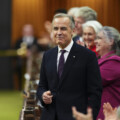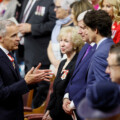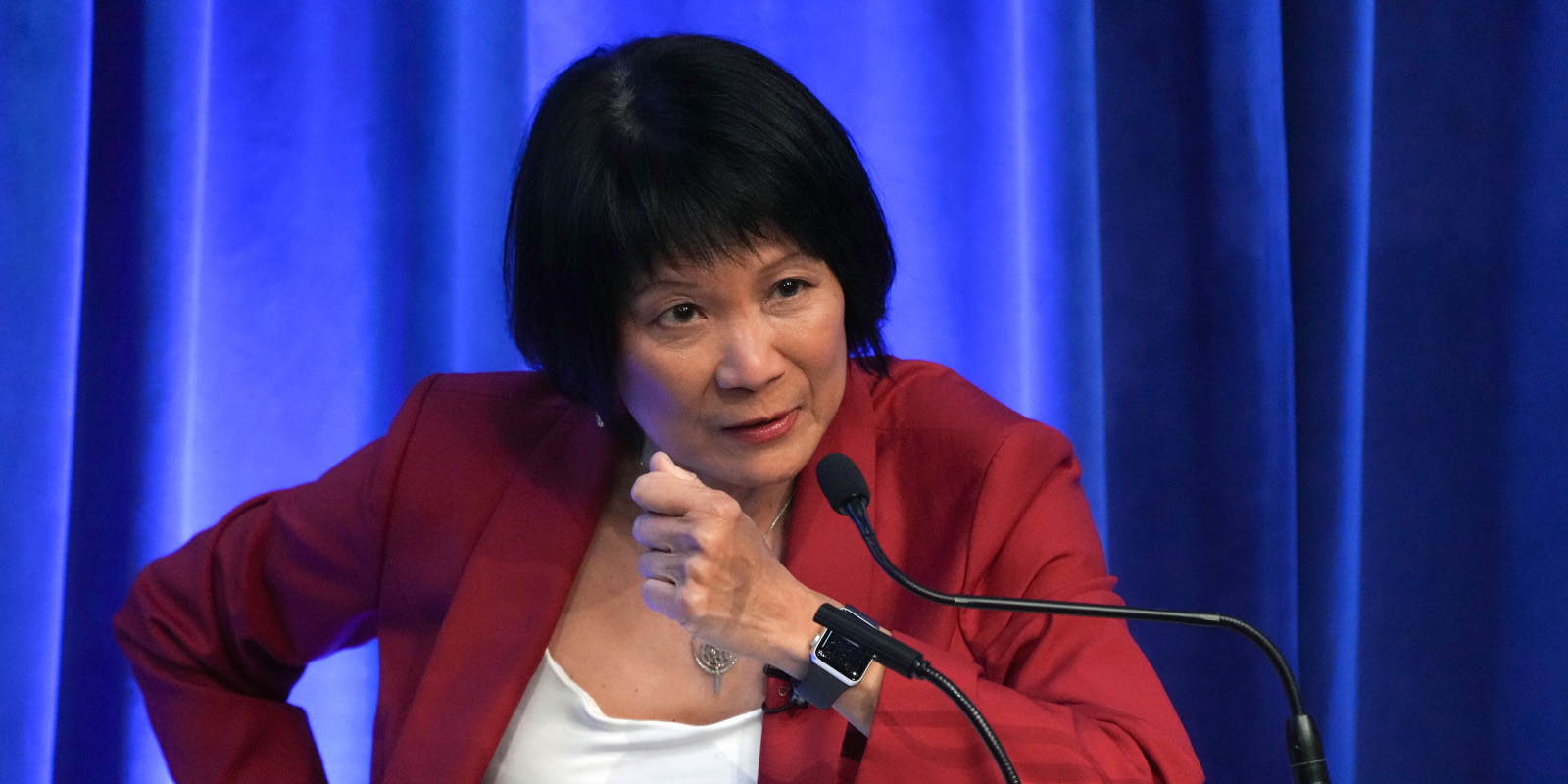Barring major mistakes by the entire polling industry, Olivia Chow is poised to be the next mayor of Toronto on Monday night. A former Toronto city councillor and NDP MP, Chow is promising a “more affordable, safe and caring city,” and will be Toronto’s first officially progressive mayor since 2010 if elected.
Outgoing mayor John Tory’s former deputy Ana Bailão, Toronto Sun columnist Anthony Furey, city councillors Brad Bradford and Josh Matlow, and former Toronto Police chief Mark Saunders are also running, but are all significantly trailing behind Chow.
While Chow has been the single-most popular candidate in the race since she entered it on April 17, critics say vote-splitting on the political centre and the Right will be the biggest reason for her likely victory.
“You’ve got a big traffic jam of centrist candidates, at least six of them that have name recognition, and then you’ve got more populist candidates,” says Steve Lafleur. “The progressive faction has their candidate and the rest of the electorate is divided.”
A Hub contributor and Toronto-dwelling streetcar enthusiast, Lafleur says he planned to vote in advance, but after staring at the long lists of names on the ballot for over an hour, he will instead vote on Monday. Lafleur says it is not surprising that Chow is the frontrunner.
A Mainstreet Research poll released on June 23 showed Chow was in the lead with 30 percent of those surveyed planning to vote for her, although Bailão was closing the gap at 22 percent. Tory had previously endorsed Bailão on June 21, while Premier Doug Ford endorsed Mark Saunders, who polled fourth at 12 percent.
There are 102 candidates in total, including former pyramid scheme orchestrator Xiao Hua Gong and the avowedly pro-canine candidate Toby Heaps, who was Ralph Nader’s U.S. presidential campaign manager in 2008. If Chow’s polling numbers are reflected in the votes cast on Monday, it will be the smallest percentage of a winner in any Toronto mayoral race since the city’s amalgamation in 1998.
The sheer number of candidates may be the only unifying theme of the byelection. Lafleur says Toronto is a combination of several different cities that were “smashed together” during the amalgamation, and thus have several different electorates with different priorities.
“If you live in North Etobicoke, you probably don’t have the same kind of transit issues I have as a streetcar rider. You probably don’t think as much about functional public toilets in public parks downtown,” says Lafleur.
John Tory resigned in February when it emerged that the married and publicly-staid mayor had engaged in an affair with a staffer during the pandemic. Lafleur doesn’t view Monday’s contest as a change election, however, pointing out that the outgoing Tory is still polling well.
“There isn’t necessarily a big appetite for change, but there’s also not a big fear of change, or at least it doesn’t look like it,” says Lafleur in reference to the large number of candidates running for mayor.
Saeid Hashemi, a member of the Toronto New Liberals, a progressive neoliberal advocacy group calling for greater housing supply, says Toronto’s many issues make it unsurprising that Chow is leading the polls.
“Given the city’s current challenges on various issues, such as cuts to transit service, budget shortfalls, mental health, and homelessness, voters are feeling frustrated,” says Hashemi. “Although there may be some vote splitting among different camps due to the large number of candidates, the shift in polls towards Chow is not entirely surprising.”
Many opponents and critics of the frontrunner Chow have stated that the political Left is responsible for many of the problems facing Toronto, but Lafleur says voters are not stupid, and is unconvinced by that argument.
“Tory is the former leader of the Ontario PC party. We can play ‘no true Tory’ and…the reality is voters understand that the more conservative faction, or centre-right faction we’ll say, has been in charge,” says Lafleur. “Olivia Chow has not been anywhere near power for a very long time.”
Chow last held public office in 2014, when she stepped down as a Toronto-area MP to unsuccessfully run against Tory when he won his first mayoral race. Tory himself was unsuccessful when he led the Ontario PCs between 2004 and 2009 and headed its disastrous showing in the 2007 provincial election.
Considered a welcome break from the chaotic mayoralty of Rob Ford, Tory ended up overseeing a rise in crime, especially on the TTC, with attacks on the city’s public transit system drastically increasing during the last year of his mayoralty.

Housing unaffordability in Toronto also skyrocketed, with rents rising over 21 percent between 2022 and 2023, and the monthly rent for a one-bedroom apartment costing roughly $2500 last December. Additionally, there is widespread frustration over the declining effectiveness of the TTC and the snail pace of building new infrastructure in the city.
As mayor, Tory evolved from being a proponent of lower taxes to a supporter of tax hikes and displayed a willingness to adopt socially progressive causes, such as renaming Dundas Street in 2021 after its namesake, deceased since 1811, was accused post-mortem of delaying the abolition of the slave trade.
Anthony Koch, a Montreal-based Conservative commentator who travels frequently to Toronto for work and family reasons, says the only thing conservative about Tory was his name.
“This was not a particularly conservative administration. He had a number of Liberals support him and endorse him,” says Koch. “The establishment Liberal class in Toronto love John Tory.”
Koch unfavourably compares Tory to Montreal mayor Valerie Plante, who, while a progressive, took a far more hardline approach to public order, such as removing tent cities that sprung up during the COVID-19 pandemic. He says that conservatives have been bad organizers at the municipal level for a long time, which has contributed to Chow’s advantage in the polls.
Regarding a unifying byelection campaign issue, Lafleur says that while law-and-order was a prominent issue when the mayoral race began, candidates proposing stricter measures to combat crime are not polling above 20 percent. While housing affordability has been a major problem in Toronto, Lafleur has not seen evidence that it is a ballot box issue for existing homeowners.
“Frankly, I’ve been kind of disappointed by how unwilling a lot of candidates have been to really run on housing as an issue and I wonder if that speaks to the fact that maybe it isn’t as salient as I would like it to be,” says Lafleur.
Recommended for You

Are Canadian immigration levels too high? Jason Kenney and Andrew Coyne debate

‘This has to be a wake-up call’: How Canada and the West must respond to Australia’s deadly antisemitic attack

Liberal majority: How Carney can get more control of Parliament, after another Conservative MP defects

‘He’s meeting the mood of the country’: Hub Politics on whether Carney is dismantling Trudeau’s policy legacy




